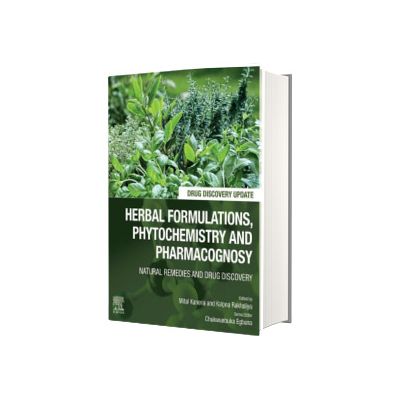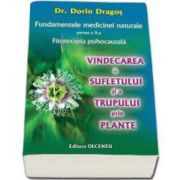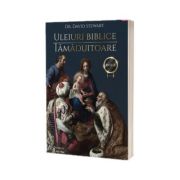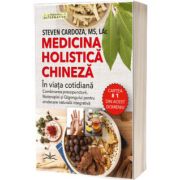Herbal Formulations, Phytochemistry and Pharmacognosy

DESCRIERE
Herbal formulations, Phytochemistry and Pharmacognosy combines the principles of natural medicines with refined modern technology that helps the development of more ecofriendly, better effective, easily available, and affordable drug discovery process.
The drug discovery process accelerates the design of new leads for various life-threatening diseases. Natural medicines have been an integral part of drug discovery process, and these not only play a major role as a template for the drug discovery but also offer holistic approach for better management of various diseases.
The main purpose of this book is to provide the classical and applied knowledge in drug discovery and broadly cover the related aspects such as herbal formulations, phytochemistry and pharmacogenetic research.
Table of contents
1. Herbal formulations for the treatment of fungal infection
2. Formulated Ghanaian herbal products for the treatment and management of diseases
3. Emerging trends in herbal formulation based on medicinal plants and algae in cancer therapeutics: A modern era perspective
4. Synergistic effects of plant extracts for antimicrobial therapy
5. Herbal formulation: An ayurvedic treatment for human diseases
6. Anti-inflammatory and analgesic activities of herbal formulation
7. Herbal anti-fungal formulations for controlling the Dandruff and Seborrheic dermatitis
8. AYUSH-64: A potential immunomodulatory medicine for COVID-19
9. Polyherbal formulation of Euphorbia hirta and Carica papaya for the treatment of dengue: Mechanisms and process of oral administration
10. Phytochemical profile and antioxidant capacity of Cariniana rubra leaf extracts from the Brazilian Cerrado
11. Molecular Pharmacognosy- Advances in DNA based techniques for authentication of botanicals in medicinal food and herbal drugs
12. Cyclotides from Violaceae family
13. Potential Antihyperglycemic Medicinal Plants and Their Active Components
14. Ethnobotanical and ethnopharmacological study of medicinal plants used by diabetic patients of a Hospital and a Medical Unit in Oaxaca
15. Comparative pharmacognostic studies of medicinal plants and their adulterant plants
16. Integrated antioxidant activity fingerprints for herbal medicines: Case study of Pistacia atlantica
17. Analytical characterization of herbal biomolecules using hyphenated techniques
18. Rauvolfia serpentina: An antivenom plant
19. Cyamopsis tetragonoloba and Arachis hypogaea crop residue smoke water characterization and application in plant protection
20. Chemical constituents from a selected plant with antioxidant activity
21. Phytochemical activity of selected medicinal plants on inhibition of extended spectrum betalactamase [ESBL] and Cephalosporinase [AmpCase] enzymes
22. Advancements in antioxidants: Chemistry, sources, mechanism of action, and their importance
23. Neuroprotection induced by Phloretin and Biochanin A – natural compounds
24. Plant secondary metabolites as inhibitors of carbohydrate hydrolyzing enzymes
25. Medicinal plants: natural source of antiviral potential to combat COVID-19
26. Antioxidant activity of Swietenia macrophylla: Experimental studies
27. In vitro evaluation of phytochemical and antioxidant potential of Syzygium occidentale bark and their synergistic potential on its antibacterial property
28. Potentials of Portulaca oleracea L. in the treatments of neurological disorder; an ethnomedicinal plant used by the indigenous community of Bangladesh
29. Vitamin C and Citrus peels – A treasure chest for healthy life
30. Tamarindus indica: A medicinal plant for snakebite
31. Qualitative and quantitative phytochemical analysis of a selected medicinal plant
32. Fermented wheat germ extract as natural support in cancer patients













OPINIA CITITORILOR